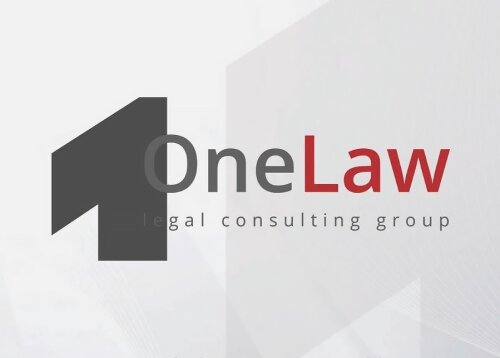Best Debt & Collection Lawyers in Yekaterinburg
Share your needs with us, get contacted by law firms.
Free. Takes 2 min.
List of the best lawyers in Yekaterinburg, Russia

About Debt & Collection Law in Yekaterinburg, Russia
Debt & Collection Law in Yekaterinburg, Russia, is a legal framework established to regulate the processes and principles by which debts are collected from individuals and businesses. This framework is consistent with the federal laws of Russia and includes statutes that govern the rights and obligations of creditors and debtors. It outlines lawful debt collection practices to ensure collections are conducted fairly and respectfully without harassing debtors. Yekaterinburg, being a major city in Russia, follows these federal laws and has relevant local judicial authorities that oversee the enforcement of these laws and regulations.
Why You May Need a Lawyer
There are several scenarios where obtaining legal help would be prudent in the field of Debt & Collection. If you are being frequently contacted by debt collectors, facing a lawsuit over a debt, struggling to repay mounting debts, or need to negotiate with creditors, a lawyer's guidance can be invaluable. Lawyers can help protect you from illegal debt collection practices, represent you in court, assist in restructuring your debts, or negotiate settlements. Additionally, if your debt situation is complicating other legal matters such as divorce or bankruptcy, a lawyer's insight is crucial to ensure your rights are protected throughout these processes.
Local Laws Overview
The key aspects of local laws relevant to Debt & Collection in Yekaterinburg include the Federal Law on Collection Agencies, which regulates the activities of collectors, ensuring that they act within strict legal parameters. The Civil Code of the Russian Federation governs contractual obligations, including lending and borrowing. The Federal Law “On Protection of Rights and Legal Interests of Individuals while Carrying Out Activities for Return of Overdue Debts” is another crucial legal instrument that protects debtors from abusive practices. Additionally, credit and financial organizations are regulated by the Central Bank of Russia and must adhere to federal laws and local regulations concerning debt collections.
Frequently Asked Questions
What should I do if a debt collector contacts me?
If you are contacted by a debt collector, request written verification of the debt. You have the right to understand the amount owed, the creditor's name, and how to dispute the debt if you believe it is not yours.
Can a debt collector seize my property without a court order?
Debt collectors cannot seize your property without a court order. They must follow legal procedures and provide you with notice before any seizure of property can occur.
Are there limits on when debt collectors can call me?
Yes, debt collectors are subject to certain restrictions on calling times. They generally must respect your privacy and avoid harassing calls at inconvenient times.
What debts are considered priority debts in Yekaterinburg?
Priority debts in Yekaterinburg might include alimony, child support, taxes, and any debts associated with criminal penalties or other legal obligations as defined by Russian law.
Is it possible to negotiate my debt repayment terms?
Yes, it is often possible to negotiate debt repayment terms. A lawyer can assist you in communicating with creditors to reach an agreement that may provide relief.
What is the statute of limitations for debt in Yekaterinburg?
The statute of limitations for most debts in Russia is generally three years from the date the debt became due.
What legal protection do I have against unfair debt collection?
Russian law provides protections against harassment, abuse, misleading representation, and other unfair practices by debt collectors.
Can I dispute a debt?
Yes, you have the right to dispute a debt. Once disputed, the collector must provide evidence confirming the validity of the debt.
What should I do if I'm served with a lawsuit over a debt?
If you are served with a lawsuit over a debt, it's critical to respond by the deadline, and consider seeking legal advice to protect your rights and prepare a defense.
Can bankruptcy be an option for managing my debts?
Bankruptcy can be an option and is regulated by the Federal Law on Insolvency (Bankruptcy). It's advisable to consult a lawyer to discuss the repercussions and process of filing for bankruptcy in your particular case.
Additional Resources
For those seeking legal advice on Debt & Collection, the following resources can be helpful: - The Russian Ministry of Justice offers information on legal regulations concerning debt collection. - The Central Bank of Russia provides guidelines for financial institutions involved in credit activities. - Local consumer protection agencies and legal aid societies offer support and may provide free legal assistance to those who qualify based on their income. - Professional legal associations can refer you to qualified debt collection lawyers in Yekaterinburg.
Next Steps
If you need legal assistance in Debt & Collection, consider taking the following steps: - Collect all documentation related to your debts, including any communication from debt collectors. - Make a list of your questions and concerns. - Seek recommendations for reputable lawyers who specialize in debt collection law. - Schedule consultations with potential lawyers to find one that you are comfortable with and who understands your situation. - Discuss your legal options and potential strategies with your chosen attorney to start the process of managing or challenging your debts effectively.
Lawzana helps you find the best lawyers and law firms in Yekaterinburg through a curated and pre-screened list of qualified legal professionals. Our platform offers rankings and detailed profiles of attorneys and law firms, allowing you to compare based on practice areas, including Debt & Collection, experience, and client feedback.
Each profile includes a description of the firm's areas of practice, client reviews, team members and partners, year of establishment, spoken languages, office locations, contact information, social media presence, and any published articles or resources. Most firms on our platform speak English and are experienced in both local and international legal matters.
Get a quote from top-rated law firms in Yekaterinburg, Russia — quickly, securely, and without unnecessary hassle.
Disclaimer:
The information provided on this page is for general informational purposes only and does not constitute legal advice. While we strive to ensure the accuracy and relevance of the content, legal information may change over time, and interpretations of the law can vary. You should always consult with a qualified legal professional for advice specific to your situation.
We disclaim all liability for actions taken or not taken based on the content of this page. If you believe any information is incorrect or outdated, please contact us, and we will review and update it where appropriate.













